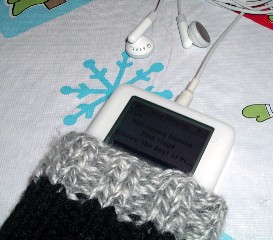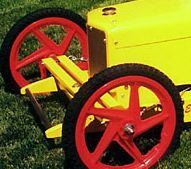In the 25 years I’ve been working I’ve had 4 careers (electronics sales, electronics technician, Mac desktop and network support consultant, software developer). So I’ve had to master my share of new subjects.
I figure I’m probably smart, but not genius smart (IQ test don’t really tell you much – although I usually score above average). So, being completely self taught is a certain source of pride for me. Although I’ve taught many structured classes, I’ve taken very few. Instead, I’ve relied on some of the following techniques when approaching new subjects:
- Make time for play – learning is all about making mistakes. It is a lot easier to give yourself the freedom to make those mistakes when you are playing. That could be puttering in your workshop to master a new woodwork technique, or investing a day or two on a development spike to play with a new software technology. The object of the exercise is to give yourself time to experiment without the stress of having a deliverable. You will always learn something, even if the result of your play is an abject failure as a product.
- Leverage your passion – learning is not always fun. It often requires a good deal of head scratching and/or boring repetitive work before the pieces begin to fall into place. Early on you may feel like you are not getting anywhere. It is important that you have enough motivational inertia to carry you through. I’ve always found it immensely easier to master a new subject that I am passionate about learning rather than one that I feel I oughta know.
- Invest in the books – I’ve never understood people you set out to learn a new subject, but balk at purchasing the books available. If you are passionate about learning the subject, and there is a book that contains details you might need, the cost (in my view) is insignificant. I also highly recommend buying multiple books on the same subject, the more descriptions, or alternate views I can get on a topic, the better.
- Find the community – there is always a lot to learn from others. Knowing the masters of the subject and your peers is imperative to placing your knowledge in the continuum of learning. With the Internet, the best place to look is a topic specific mailing list. But when I was mastering electronics, I wouldn’t have gotten anywhere without the community of geeks who hung out and worked at General and Arkon Electronics in Toronto (sadly two stores no longer in existance).
- Create a deadline – at some point I find that playing is not enough. To really master a subject, I’m going to have to build a real product. One that drives me outside of my comfort zone. The easiest way I’ve found to do that is to commit to delivering a solution based on someone else’s needs. In this way I’ve created a deadline and an impetus to put my learning into practice.
- Aim for the Zen – every topic I’ve ever sought to master has a certain kernel of knowledge (not information) that once adopted, makes the process clearer. For me with electronics, it was ability to see schematics as being comprised of modules that could be later mixed and matched. With WebObjects it was the understanding of OOP and especially the Model-View-Controller (MVC) paradigm and the value it brings. The idea is to grasp the Zen of the topic – The deeper meaning that can act as a bedrock of your learning allowing you to understand why and not just how.
- Teach someone else – there is no better way to truly master a subject than to commit to teach someone else. In doing so, you will need to analyze the assumptions you’ve made and your students questions will expose the blind spots in your understanding. You will also realize that a good teacher needs to be truly humble. There is no shame in saying I don’t know the shame is in not saying it.

